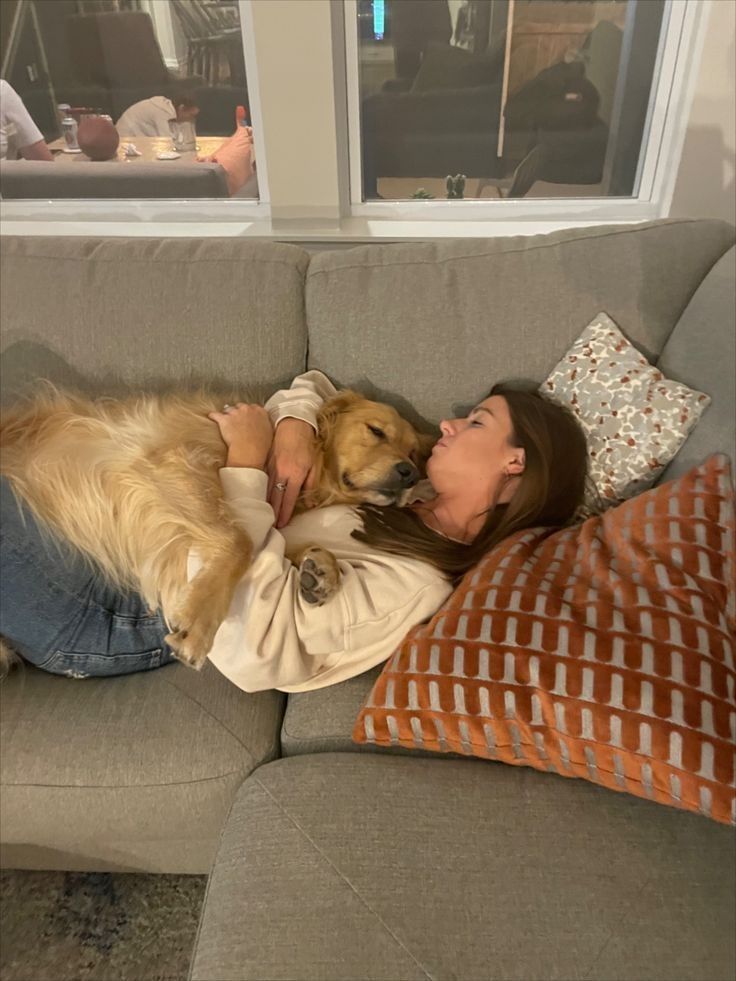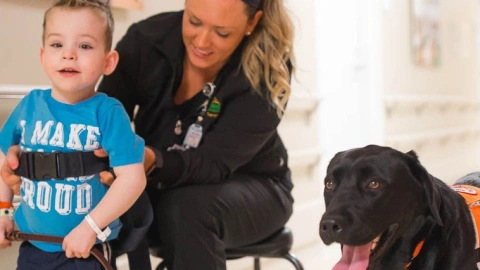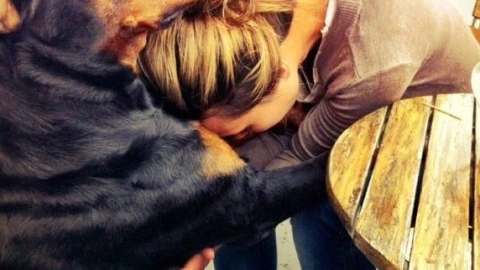Dog / Detail
A Dog's Heart: Finding Your Canine Companion
Jonathan Bennet | 08 October 2024 | 12:05
In the tapestry of life, there are few connections as profound and enduring as the one between a human and a dog. Beyond their loyalty and companionship, dogs possess unique personalities that can resonate deeply with our own.
In this exploration, we'll delve into the world of canine character traits and discover how to find a dog whose personality perfectly complements your own, offering solace in times of sadness and a calming influence amidst life's hectic pace.

Finding the right dog can be a transformative experience. By understanding canine personalities, reflecting on your own needs, and taking the time to meet potential companions, you can discover a furry friend who will bring joy, comfort, and unwavering loyalty into your life.
Remember, the bond between a human and a dog is a unique and special one. Embrace the journey of finding your perfect canine soulmate and experience the profound healing and companionship that only a dog can offer.

Understanding Canine Personalities
Dogs, like humans, are individuals with distinct personalities. While breed can offer some insight into potential temperament, it's essential to remember that every dog is unique. Some common canine personality traits include:
- Affectionate: Dogs who crave physical and emotional closeness, often seeking out cuddles and attention.
- Playful: Energetic and fun-loving dogs who enjoy games, toys, and social interaction.
- Calm and Gentle: Relaxed and easygoing dogs who prefer a peaceful environment and gentle handling.
- Anxious: Dogs who may exhibit fear, nervousness, or sensitivity to new situations or stimuli.
- Dominant: Dogs who assert themselves as leaders within their social group, requiring confident and consistent leadership.

Finding Your Canine Soulmate
When searching for a dog, consider your lifestyle, living situation, and desired level of companionship. Here are some tips to help you find the perfect match:
- Self-Reflection: Assess your personality, energy level, and daily routine. Are you an introvert or extrovert? Do you enjoy outdoor activities or prefer a quieter lifestyle? Understanding yourself will help you identify the traits you seek in a canine companion.
- Breed Research: While breed can provide clues about temperament, it's crucial to remember that individual dogs within a breed can vary significantly. Research different breeds to learn about their general characteristics, but always meet dogs in person to assess their unique personality.
- Shelter and Rescue: Consider adopting a dog from a shelter or rescue organization. These dogs often have compelling backstories and are eager for loving homes. Many shelters and rescues can provide information about a dog's personality and behavior.
- Meet and Greet: Spend time with potential dogs to observe their interactions with people and other animals. Pay attention to their body language, energy level, and how they respond to different situations.
- Consider Your Home Environment: Think about your living space, yard size, and any other pets you may have. A high-energy dog may not be ideal for a small apartment, while a dog with separation anxiety may struggle if left alone for long periods.

Canine Companions for Healing and Comfort
Dogs have a remarkable ability to sense our emotions and offer unwavering support. For those experiencing sadness or navigating a hectic life, a canine companion can provide invaluable comfort and companionship.
- Emotional Support: Dogs can offer unconditional love, empathy, and a listening ear. Their presence can alleviate feelings of loneliness, anxiety, and depression.
- Stress Reduction: Interacting with dogs has been shown to lower stress levels and reduce cortisol, the hormone associated with stress. Activities like petting, playing, and walking a dog can provide a much-needed break from the demands of daily life.
- Routine and Structure: Dogs require regular care, such as feeding, walking, and playtime. Establishing a routine with a dog can provide a sense of structure and purpose, helping to combat feelings of overwhelm or aimlessness.
- Social Connection: Dogs can be excellent social catalysts. Walking a dog in a park or attending dog-friendly events can provide opportunities to meet new people and build connections within your community.
Related
-

The Healing Power of Dogs: How Canine Therapy is Revolutionizing Mental Health and Boosting Positive Energy in Humans
Dog14 November 2024
-

A Pawsitive History: Dogs of Nuremberg
Dog09 November 2024
-

The Role of Oxytocin in the Human-Dog Bond: The Science Behind Our Deep Connection
Dog06 November 2024
-

Beyond the Beach: Jamaica's Dog Lovers
Dog29 October 2024
-

A Dog's Delights: Homemade Snacks for Our Furry Babies, Recipes Included!
Dog29 October 2024
-

A Dog's Disorientation: Understanding Your Dogs' Wanderlust
Dog29 October 2024
Popular
-

-

A Pawsitive History: Dogs of Nuremberg
09 November 2024 -

-

Beyond the Beach: Jamaica's Dog Lovers
29 October 2024 -
